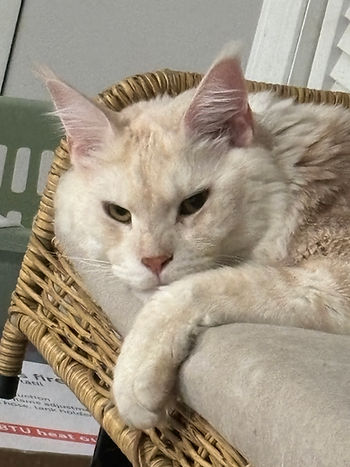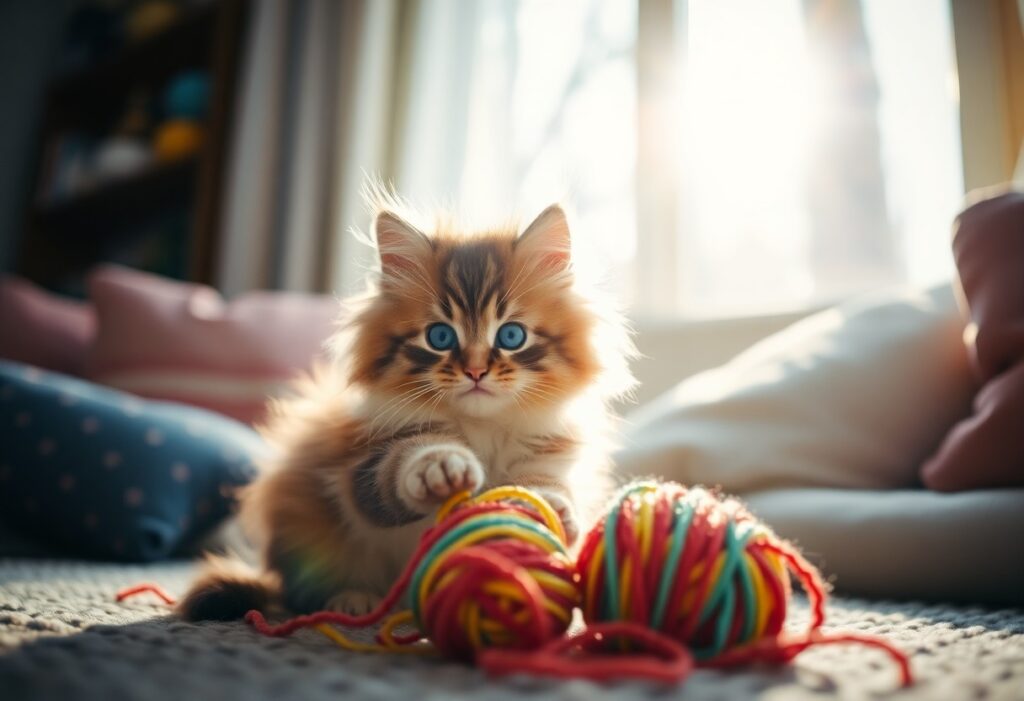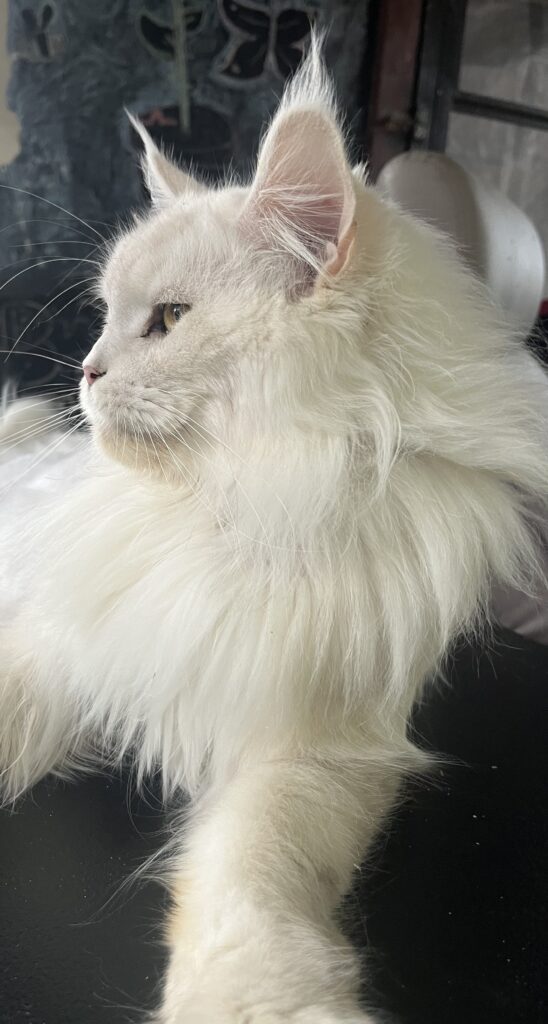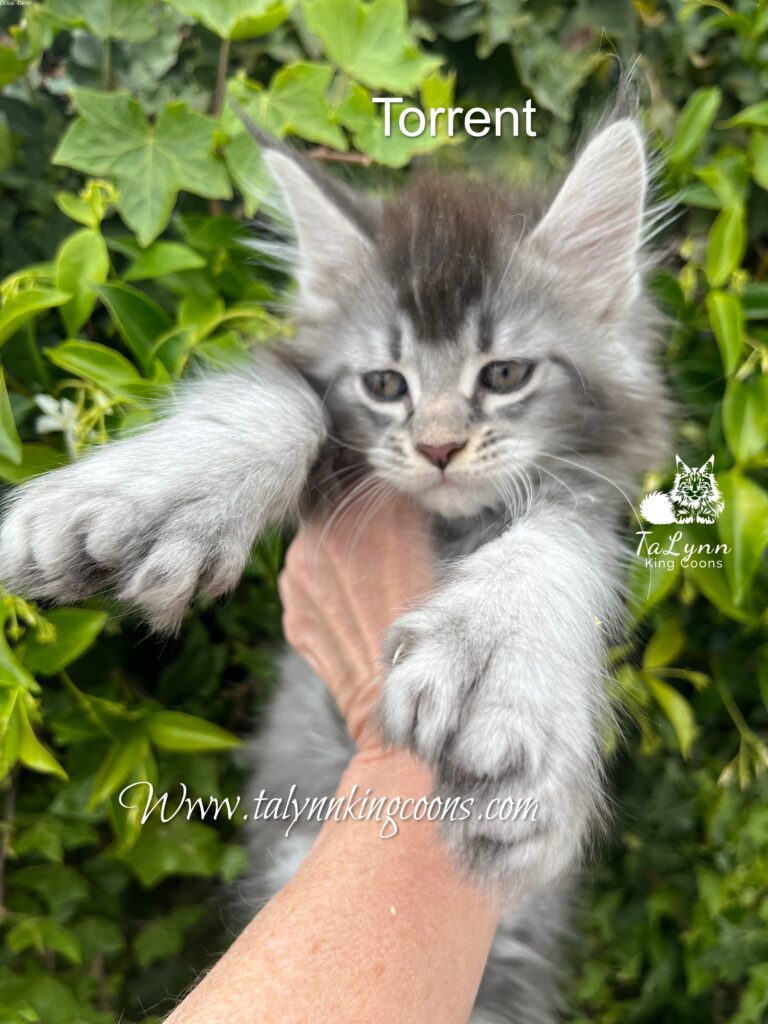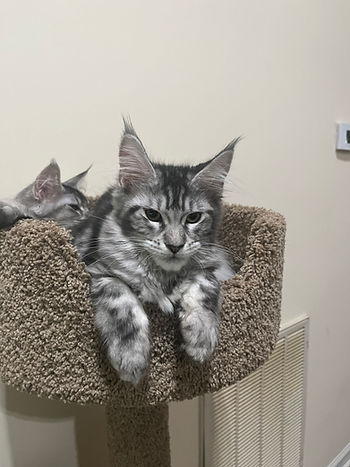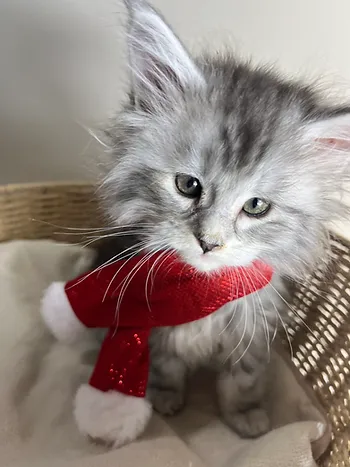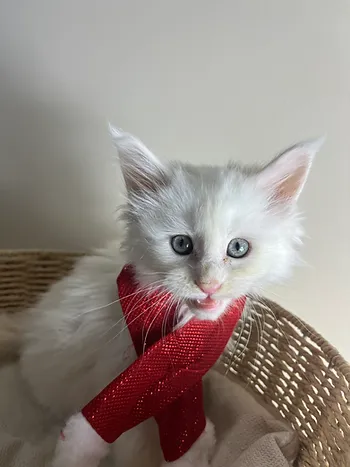In the grand tapestry of feline breeds, the Maine Coon stands out not just for its luxurious mane and sociable nature, but also for its unique health profile, particularly concerning Hypertrophic Cardiomyopathy in Maine Coons and HCM. Let’s embark on a journey to understand HCM in Maine Coons and HCM, blending technical insights with tales of resilience and love. Not to be confused with a heart murmur
As we delve deeper into the world of Maine Coons and their health, it’s essential to recognize the impact of Hypertrophic Cardiomyopathy (HCM) not only on the cats themselves but also on their owners. Many families find themselves navigating a landscape filled with both challenges and triumphs. The stories shared by Maine Coon owners often highlight the joys of companionship and the strength of the bond formed through care and vigilance.
In the context of Maine Coons and HCM, emotional connections deepen through shared experiences.
Understanding Hypertrophic Cardiomyopathy in Maine Coons and HCM is vital for all owners who cherish this breed.
Being aware of HCM in Maine Coons can help owners make informed health decisions.
Maine Coons and HCM require special attention to ensure these magnificent cats lead fulfilling lives.
Learning about HCM in Maine Coons can help potential owners recognize the importance of health screenings.
HCM is a serious condition in Maine Coons and understanding it can prepare owners for the necessary steps.
Regular check-ups for Maine Coons and HCM ensure early detection of potential health issues.
It’s crucial for owners to provide a supportive environment for Maine Coons, especially those diagnosed with HCM.
Empowering owners with knowledge about HCM in Maine Coons can lead to better health management.
Understanding HCM in Maine Coons is essential for fostering a healthy and happy environment.
With proper care, Maine Coons with HCM can lead fulfilling lives despite their health challenges.
Maine Coons and HCM together create a unique journey for both cats and their owners.
Understanding other causes of heart issues in Maine Coons and HCM can help in prevention.
Understanding HCM in Maine Coons requires not only knowledge of the condition but also awareness of the lifestyle adjustments needed to support a cat with this diagnosis. Owners can take proactive steps to ensure their Maine Coons lead happy, healthy lives, despite the challenges posed by HCM.
Sharing stories about Maine Coons and HCM can foster a sense of community among owners.
Communication with your vet about Maine Coons and HCM can lead to tailored care plans.
Recognizing the influence of genetics on Maine Coons and HCM can guide responsible breeding practices.
Maine Coons are known for their large size and unique appearance, which includes tufted ears and bushy tails. They are one of the largest domesticated cat breeds, often weighing between 10 to 25 pounds. Their playful and affectionate nature makes them excellent companions, and many owners find joy in their charming personalities. Understanding the health challenges that come with this breed, particularly Hypertrophic Cardiomyopathy (HCM), is essential for every Maine Coon owner.
HCM is a condition that not only affects the Maine Coon breed but can also be seen in other breeds such as the Ragdoll and British Shorthair. In cats, HCM is the most common heart disease, and it’s crucial for potential owners to be aware of the risks associated with this condition.
Understanding HCM in Maine Coons
For Maine Coons, early detection of HCM can significantly affect treatment outcomes. The use of genetic testing in breeding programs is becoming increasingly important to reduce the prevalence of HCM in this beloved breed.
In addition to genetic factors, it’s essential to educate ourselves about the environment and lifestyle of our Maine Coons. Ensuring they have a stress-free environment, regular exercise, and a balanced diet can significantly impact their heart health.
Understanding the prevalence of HCM in Maine Coons can empower owners to take proactive steps. Regular cardiac screenings should be part of routine health care for these cats, particularly if they belong to breeding lines known for HCM. Some breeders are starting to offer HCM-free guarantees, which can give prospective owners peace of mind.
What is HCM? Hypertrophic Cardiomyopathy (HCM) in Maine Coons is a condition where the heart muscle thickens, reducing the heart’s ability to pump blood effectively. This can lead to heart failure, blood clots, and sometimes sudden death. Symptoms may include lethargy, reduced appetite, and difficulty breathing. Regular veterinary check-ups are vital because many cats do not exhibit obvious symptoms until the condition is severe. With knowledge and care, many Maine Coons thrive despite this condition.
When Does HCM Typically Appear? HCM can rear its head at various stages in a cat’s life, but it’s most commonly diagnosed between the ages of 1 to 5 years. However, it’s worth noting that HCM can be present from birth or develop at any age. This unpredictability makes regular veterinary check-ups a cornerstone of responsible ownership. Owners should remain vigilant and educate themselves on the signs and symptoms to look for throughout their cat’s life.
Prevalence in Maine Coons HCM is more common in Maine Coons than in the general cat population due to genetic predispositions. Studies suggest that around 20-30% of Maine Coons might have some form of heart disease, with a significant portion being HCM. This statistic, while concerning, underscores the importance of genetic screening and responsible breeding practices. Understanding the prevalence can empower owners to make informed decisions about breeding and purchasing Maine Coons.
Other Causes of Maine Coons and HCM
Regular monitoring of your cat’s weight and activity level can also provide insights into their heart health. Weight management is critical, as obesity can exacerbate heart issues.
Living with HCM can be an emotional journey for owners. Sharing experiences with other Maine Coon owners through forums and social media can provide support and insights that are invaluable during challenging times.
Additionally, maintaining an open line of communication with your veterinarian about your Maine Coon’s health can help address any concerns early on and tailor a care plan unique to your cat’s needs.
While genetics play a starring role, HCM isn’t solely a genetic script:
- Age: As cats age, the risk of developing HCM increases, even in breeds not genetically prone.
- Diet: Nutritional deficiencies or imbalances might contribute to heart muscle health issues.
- Hypertension: High blood pressure can lead to heart muscle thickening as well.
- Thyroid Disease: Hyperthyroidism in cats can exacerbate or mimic HCM symptoms.
Alternative therapies, such as acupuncture and dietary supplements, can also be explored in collaboration with your vet. These options may help improve your cat’s quality of life and support heart health.
Understanding these factors can help in managing and potentially preventing HCM through lifestyle adjustments and health monitoring.
Living with HCM: A Tale of Care and Vigilance
The emotional bond between a Maine Coon and its owner becomes even more profound when facing health challenges together. Many owners report feeling a deeper sense of connection and understanding as they navigate HCM with their beloved pets.
As we explore the lives of Maine Coons with HCM, it is important to recognize the emotional bond that forms between these cats and their owners. Many owners report that their Maine Coons are highly intuitive and seem to understand when their human companions are feeling down. This unique connection can provide comfort and joy, especially during challenging times.
Being a caretaker of a Maine Coon with HCM means being vigilant and responsive to changes in their health. Owners should learn to recognize the signs of distress in their cats, such as rapid breathing or reluctance to engage in normal activities. This attention to detail can make a significant difference in the quality of life for these felines.
Living with HCM: A Tale of Care and Vigilance
Management and Treatment
In the end, education, community support, and a proactive approach can make a significant difference in the lives of Maine Coons with HCM. Whether through shared stories, advice, or companionship, the journey is made lighter when it’s shared with others.
- Medication: Drugs like beta-blockers or calcium channel blockers can help manage symptoms, improving heart function.
- Diet: A specialized diet low in sodium and sometimes supplemented with taurine can support heart health.
- Activity: Controlled exercise helps maintain heart health without over-stressing the heart.
The Maine Coon Lifestyle
Understanding the community support available for Maine Coons and HCM can be invaluable for owners.
Living with a Maine Coon, especially one with HCM, is an enriching experience:
Maine Coons exhibit playful antics well into their senior years, and this joy should be nurtured. Providing them with interactive toys and gentle play can help keep them engaged without overexerting their hearts.
- Companionship: Maine Coons are incredibly loving, often acting more like dogs in their loyalty and affection.
- Community Support: There’s a vibrant community of Maine Coon enthusiasts and owners who share experiences, from managing HCM to celebrating life’s simple joys.
A Heartfelt Conclusion
While HCM is a chapter in the life of many Maine Coons, it’s not the whole story. With love, attention, and modern veterinary care, these cats can lead lives that are not just long but also rich with joy. The bond between Maine Coon and owner strengthens as they navigate this health challenge together, creating memories that last a lifetime.
While HCM is a chapter in the life of many Maine Coons, it’s not the whole story. The journey of caring for a Maine Coon with HCM can lead to greater awareness, not only about the condition itself but also about the rich emotional lives these cats lead. With love, attention, and modern veterinary care, these cats can lead lives that are not just long but also rich with joy, reminding us of the profound bonds we share with our pets.
Furthermore, the emotional aspect of caring for a Maine Coon with HCM shouldn’t be overlooked. Many owners develop a deep emotional connection with their pets, which is often a source of strength and motivation to provide the best care possible. Sharing experiences with other Maine Coon owners can also provide valuable support and insights into living with this condition.

